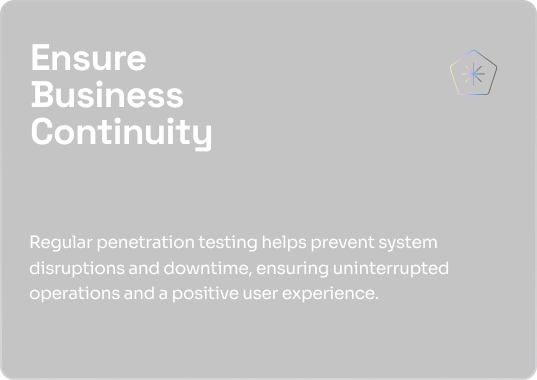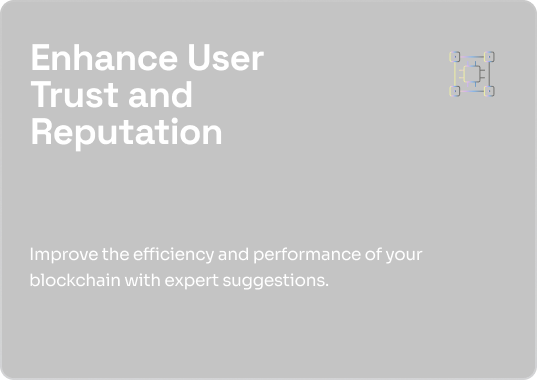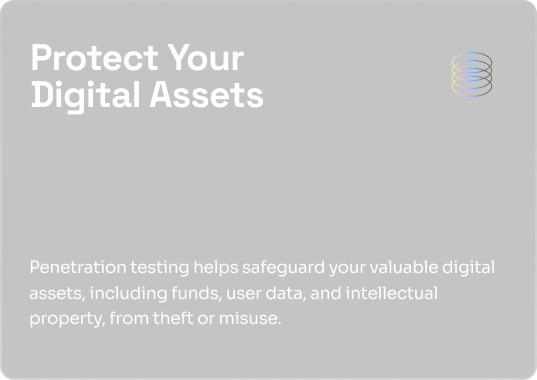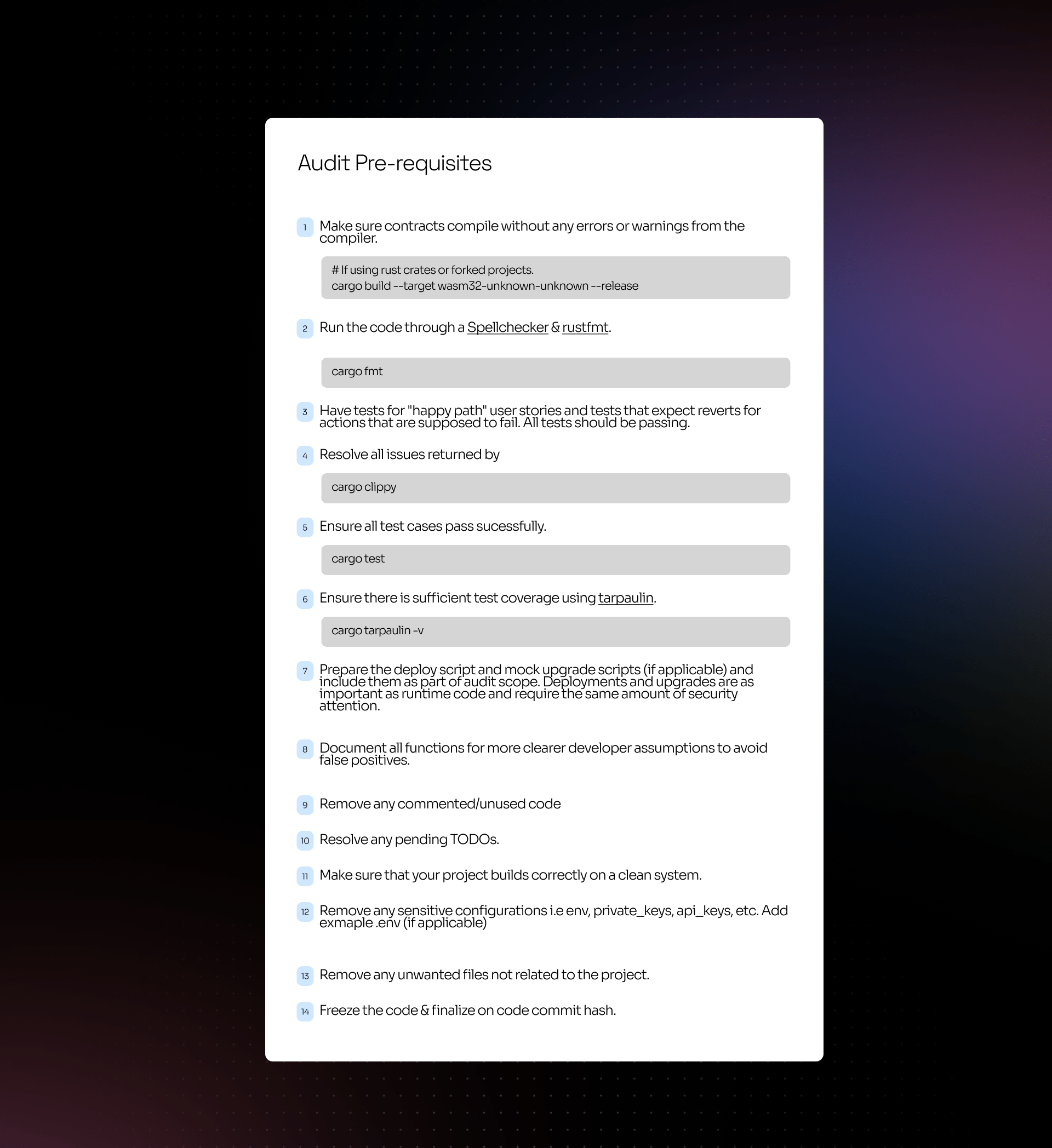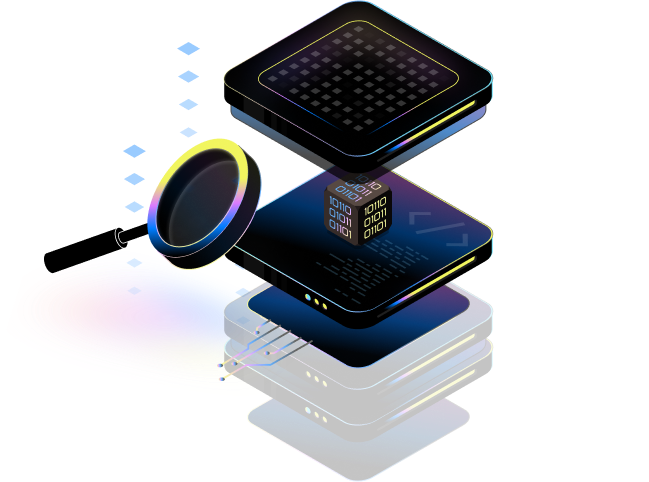
Partners that trust us














Smart Contracts
DeFi Applications
Blockchain Infrastructure
Projects
Wallets
Bridges
Blockchain bridges enable interoperability between different blockchain networks, often involving cross-chain asset transfers. Penetration testing is vital to ensure that these bridges are secure and do not lead to network failure, asset loss or exploits.
Decentralized Identities
NFT Applications
Asset Tokenization
Expert Penetration Testers

Enhanced Security

Risk Mitigation

Actionable Insights

Pre-Engagement and Scoping
- Initial Consultation: A comprehensive discussion with the client to understand their security goals, system boundaries, and testing objectives.
- Scope Definition: Clearly define the assets, systems, and applications to be tested, along with any specific vulnerabilities or threat vectors to focus on.
- Access and Permissions: Establishing necessary access and permissions for the testing team to conduct the assessment effectively.
- Testing Methodology Agreement: This agreement defines the testing approach—black box, white box, grey box—and any specific testing methodologies to be employed.
Information Gathering and Reconnaissance
- Asset Discovery: Identifying and mapping all relevant systems, applications, and network components.
- Vulnerability Research: Gathering information about potential vulnerabilities based on the target system's technology stack and industry trends.
- Threat Intelligence: Analyzing threat landscapes and identifying potential attack vectors.
Vulnerability Assessment
- Automated Scanning: Employing vulnerability scanning tools to identify potential weaknesses in the system.
- Manual Testing: Conducting in-depth manual testing to uncover vulnerabilities that might be missed by automated tools.
- Exploit Development: Creating proof-of-concept exploits for identified vulnerabilities to assess their potential impact.
Penetration Testing
- Simulated Attacks: Executing carefully crafted attacks to mimic real-world threats and evaluate system defenses.
- Privilege Escalation: Attempting to gain higher-level privileges within the system.
- Lateral Movement: Exploring the ability to move between different systems and networks.
- Data Exfiltration: Testing the ability to extract sensitive data from the system.
Post-Exploitation
- Persistence: Assessing the ability to maintain access to the system.
- Data Destruction: Evaluating the potential to delete or modify data.
- Impact Assessment: Determining the potential consequences of successful attacks.
Reporting
- Vulnerability Summary: Providing a clear overview of identified vulnerabilities.
- Risk Assessment: Evaluating the potential impact of vulnerabilities and prioritizing remediation efforts.
- Recommendations: Offering actionable steps to mitigate risks and improve security posture.
- Evidence: Providing supporting evidence, such as screenshots, logs, and exploit code, to substantiate findings.
Frequently asked Questions
Web3 penetration testing simulates attacks on your decentralized application to identify vulnerabilities.
It helps protect your application, users, and assets from financial loss, reputation damage, and data breaches.
We test for a wide range of vulnerabilities, including smart contract flaws, network security issues, and more.
The duration depends on the complexity of your application. We provide an estimated timeline during the initial consultation.
The cost varies based on project scope and complexity. We offer competitive pricing and customized packages.








